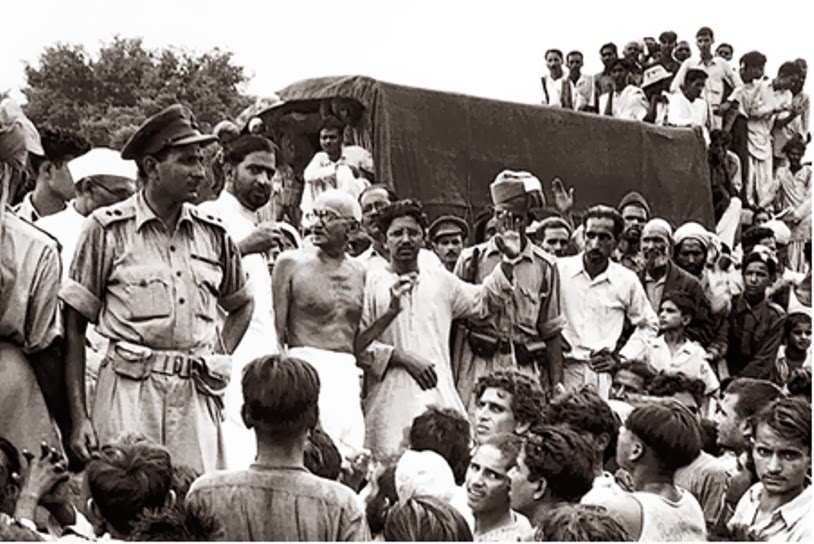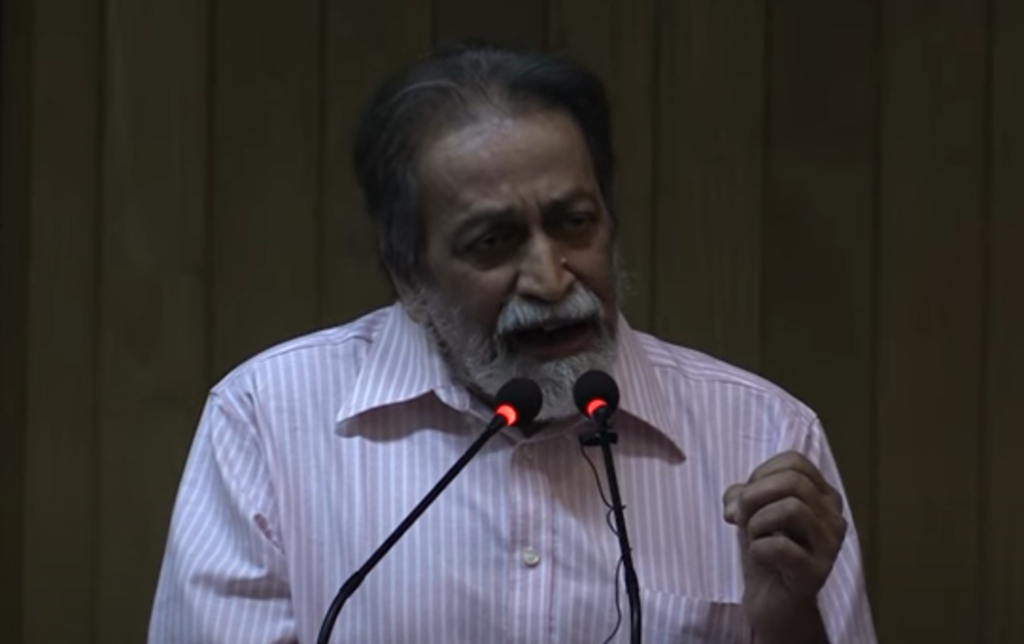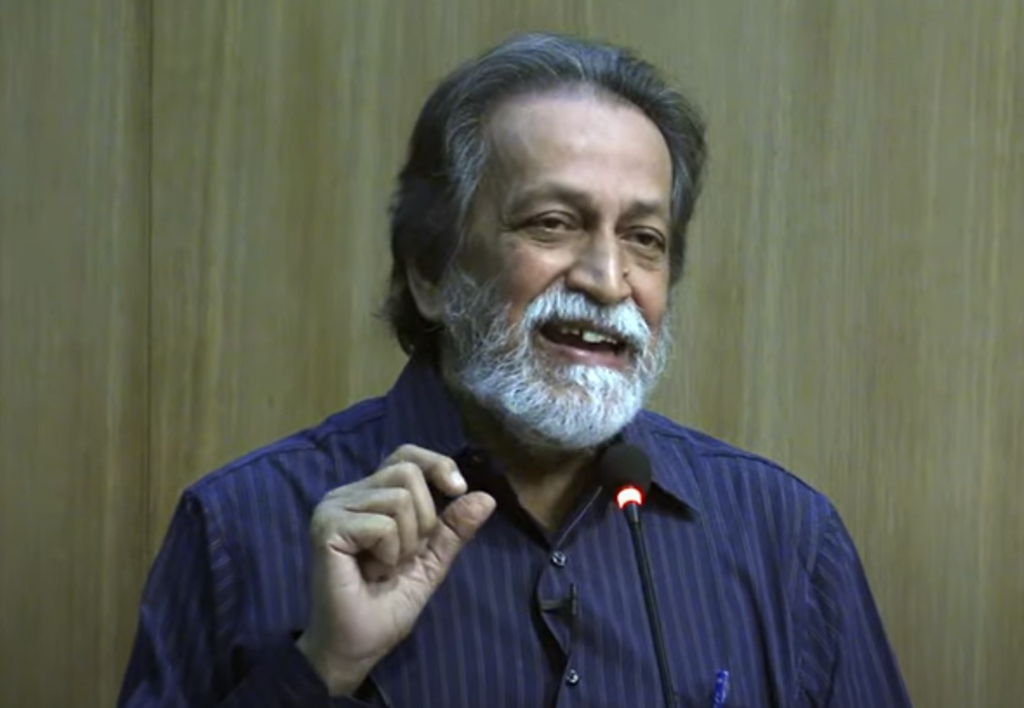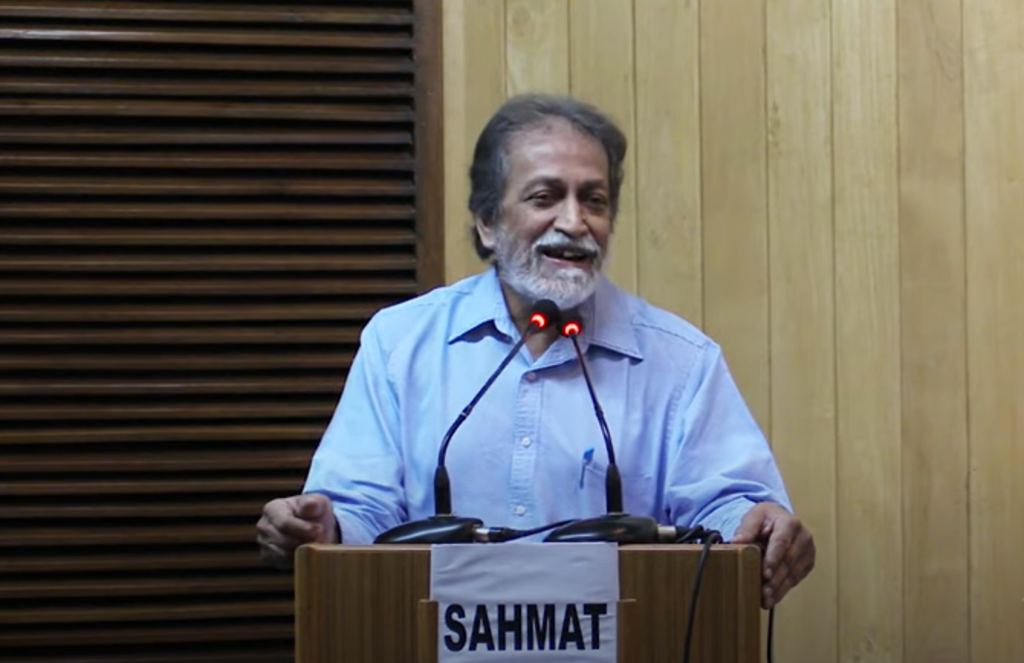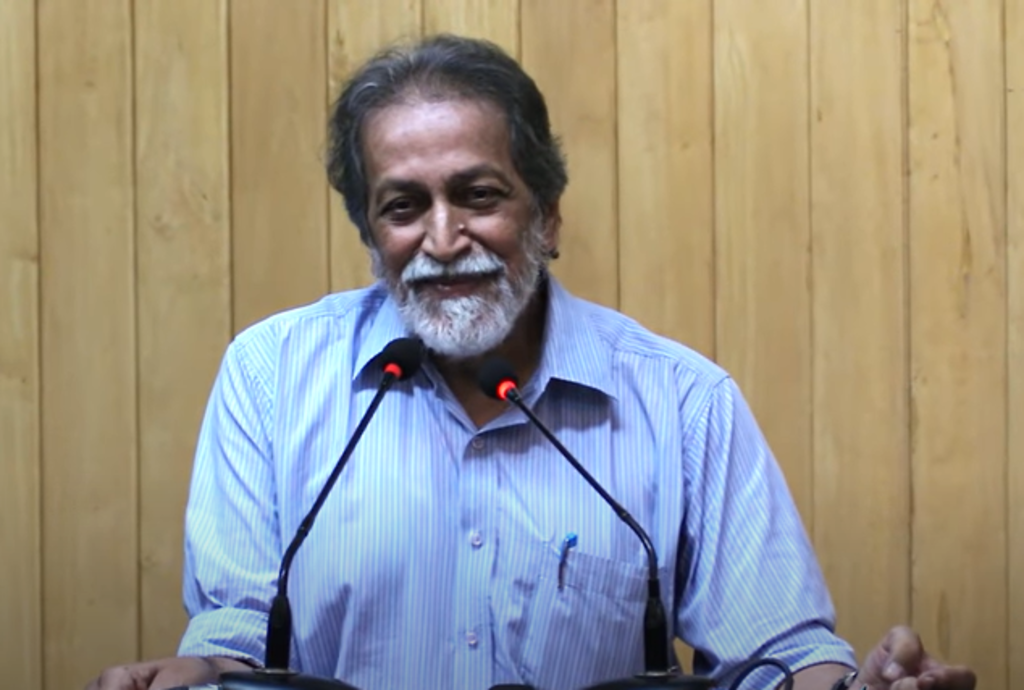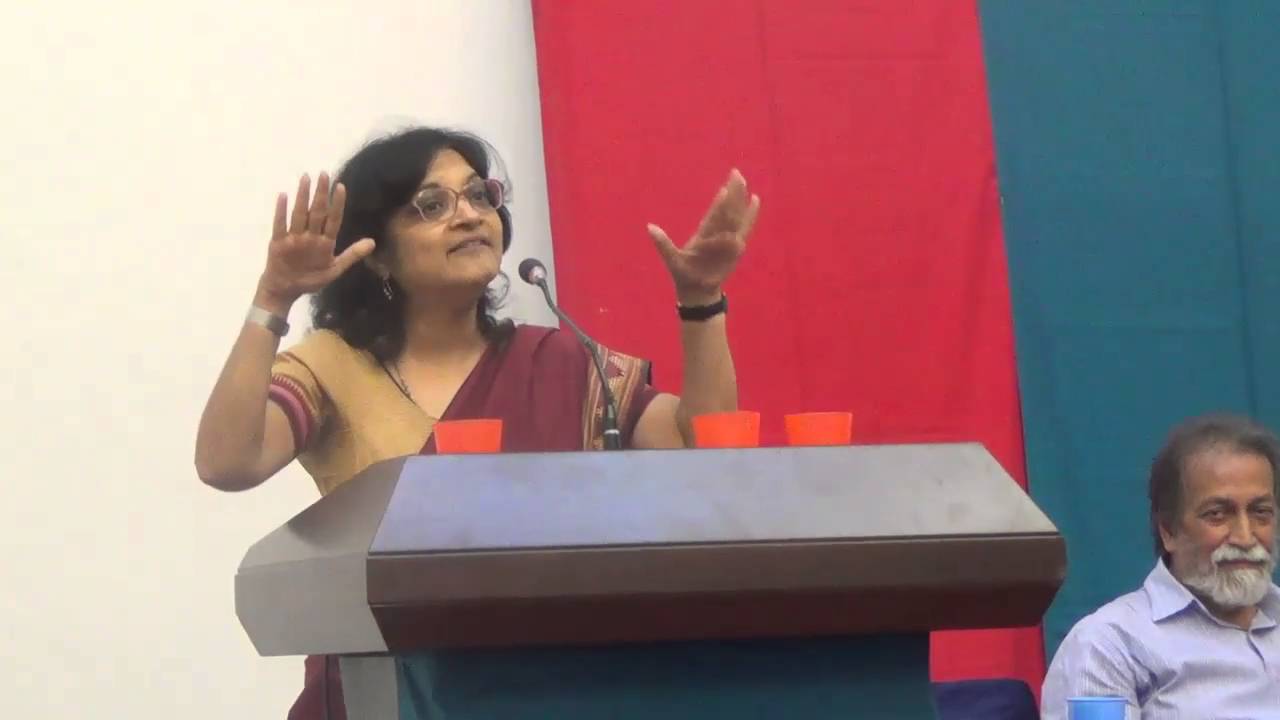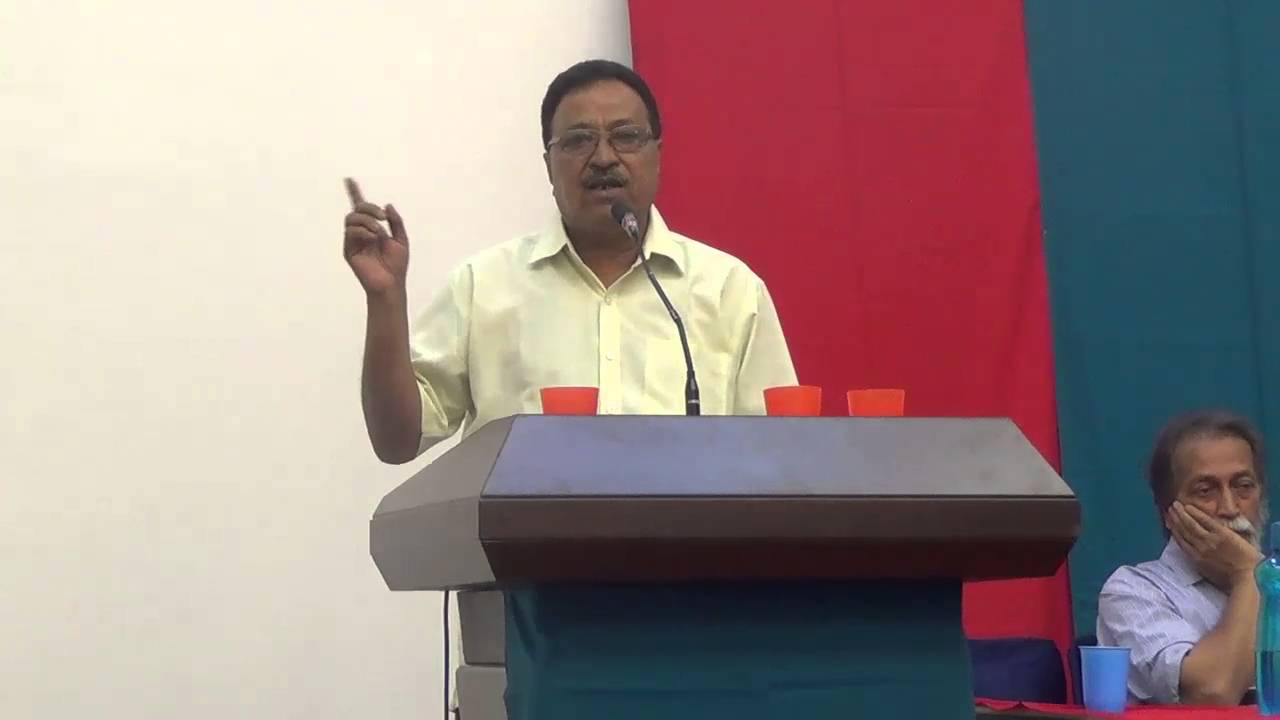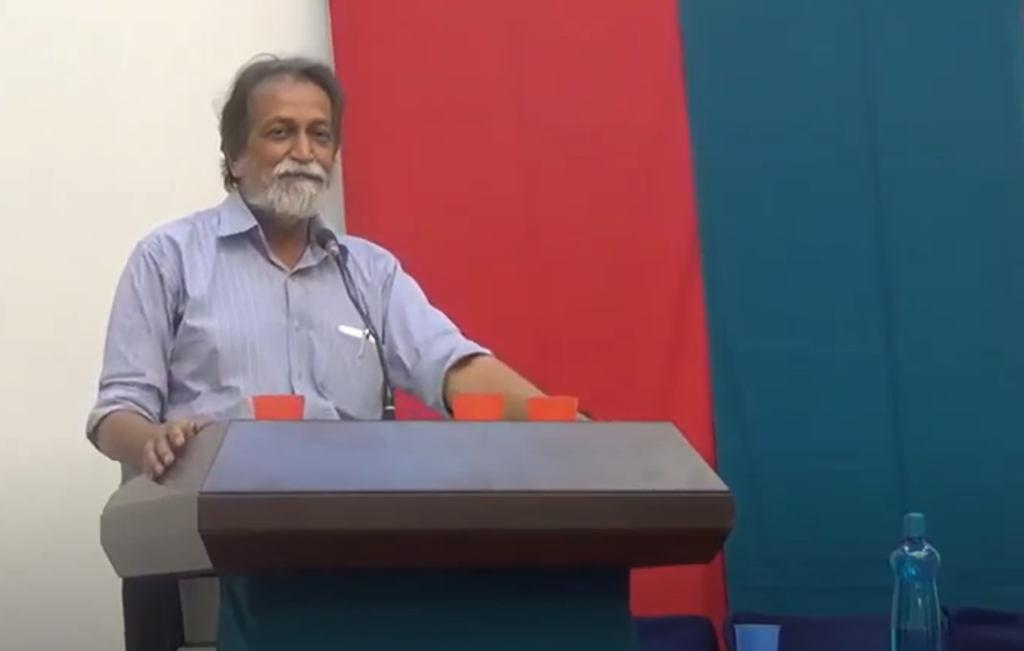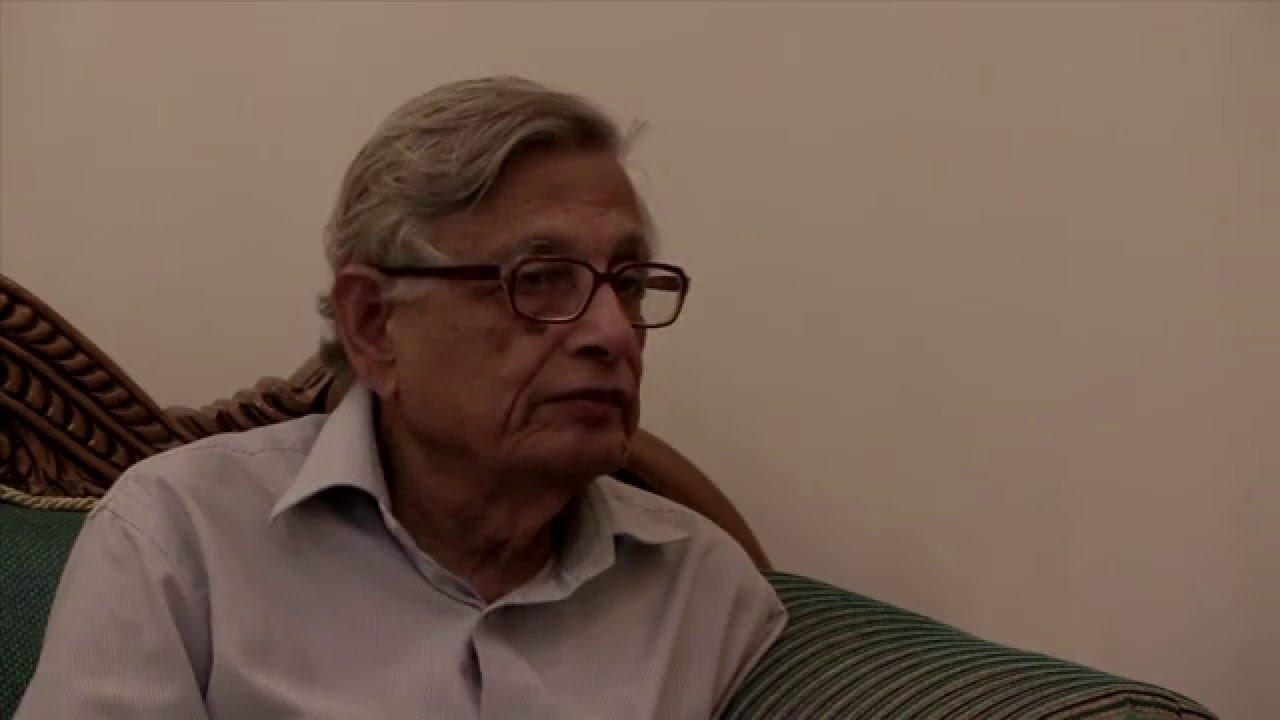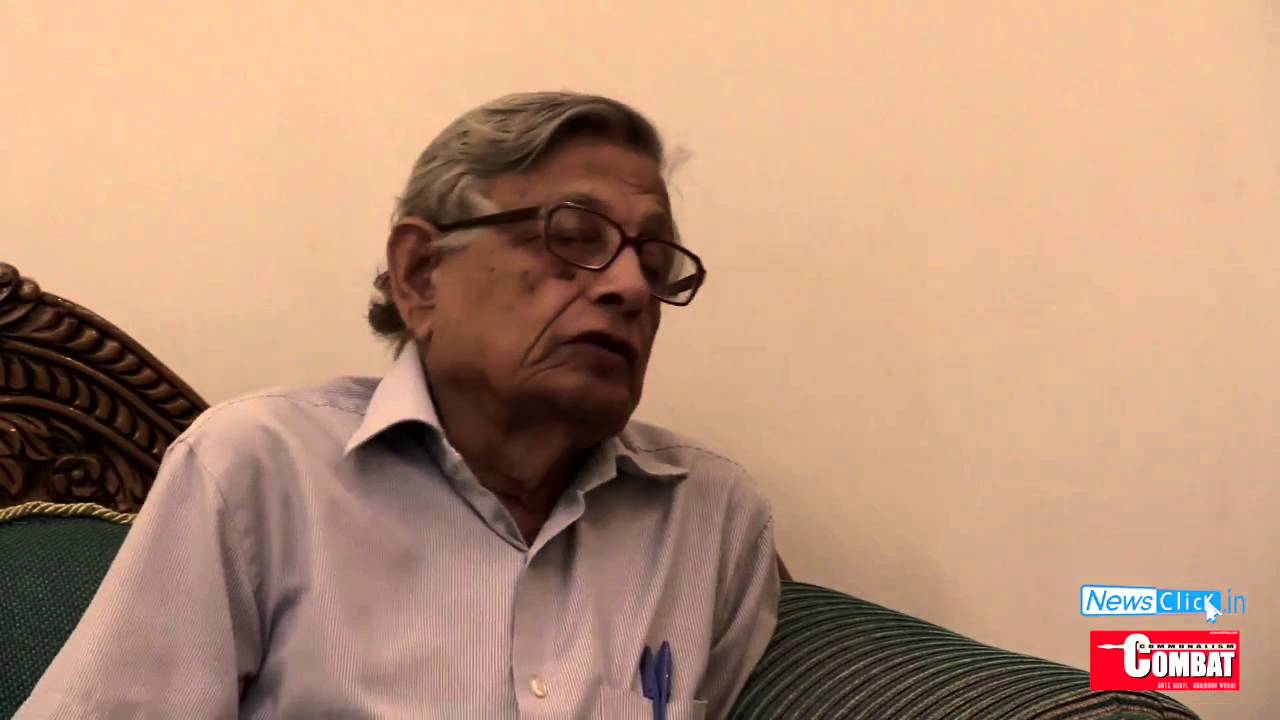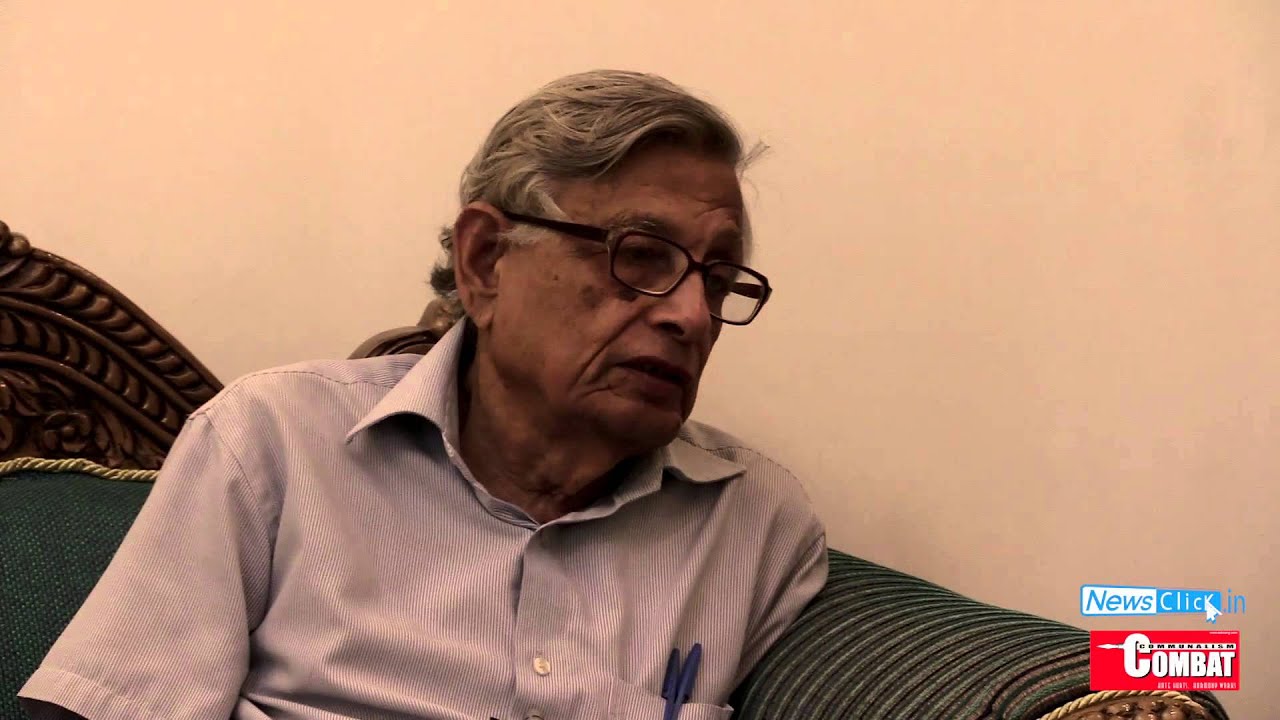The fourth and final one in the lecture series organised by SAHMAT to commemorate the Centenary Year of the October Revolution was held on Saturday, 5 November 2016 at Gulmohar Hall, India Habitat Centre, Lodhi Road at 7 pm. The talk was on Marxism, Liberalism and the Contemporary World by Prabhat Patnaik, economist and social commentator. The final lecture in the series discusses the current world conjuncture and the lessons of the October Revolution in this context. It contrasts the liberal and Marxist approaches to the contemporary capitalist crisis.
Sahmat Resources
The spontaneity of capitalism
To commemorate the Centenary year of the October Revolution, SAHMAT is organizing a series of 4 lectures to be delivered by Professor Prabhat Patnaik. This one is third in the series. Renowned Marxist thinker and economist Patnaik in this lecture on “Spontaneity of Capital”, characterized the post-War period as a temporary restructuring of capitalism, forced on to it due to a serious communist threat. He goes on to talk about policies of Thatcher and Reagan, Centralization of capital, inter-imperialist rivalry, globalization, and its impact across the world.
The Leninist conjuncture
To commemorate the Centenary year of the October Revolution, SAHMAT organized a series of 4 lectures to be delivered by Professor Prabhat Patnaik. This is the second one in the series.
Marxist theory and the October Revolution
To commemorate the Centenary year of the October Revolution, SAHMAT is organizing a series of 4 lectures to be delivered by Professor Prabhat Patnaik. This one is first in the series.
The Assault on Thought: Part 1
Prabhat Patnaik, Professor Emeritus at JNU, gives the introductory speech at the Public Symposium on “The Assault on Thought” organised by the Safdar Hashmi Memorial Trust (SAHMAT) on 20 March 2016, at the Constitution Club, New Delhi.
RSS is against science and reason
Excerpt of the interview with Irfan Habib being published on the backdrop of the recently concluded Indian Science Congress
“The Rashtriya Swayamesvak Sangh (RSS) and the Hindu Mahasabha (HMS) were never nationalists they are only communalists” said professor Irfan Habib in this interview to Teesta Setalvad of Communalism Combat. “Hence they have no heroes.” “They (the RSS and the HMS) did not in any way participate in the national movement against the British. Hence they lay claim to three, Bhagat Singh, Subhash Chandra Bose and Sardar Patel. Bhagat Singh and Bose because of their differences with Gandhi and Patel because of some differences with Nehru.”
RSS and Hindu Mahasabha were never nationalists
The Rashtriya Swayamesvak Sangh (RSS) and the Hindu Mahasabha (HMS) were never nationalists they are only communalists” said professor Irfan Habib in this interview to Teesta Setalvad of Communalism Combat. “Hence they have no heroes.
They (the RSS and the HMS) did not in any way participate in the national movement against the British. Hence they lay claim to three, Bhagat Singh, Subhash Chandra Bose and Sardar Patel. Bhagat Singh and Bose because of their differences with Gandhi and Patel because of some differences with Nehru.
During the national movement it was common to have differences in approach but be united in the struggle against colonial rule. This the RSS and HMS cannot understand.
In the 1990s (as the Hindu communalists grew in political power) they attacked Gandhi saying that he was not a Rashtrapita (father of the nation) as the nation was as old as the Rig Veda.”
Ms Golwalkar, the RSS ideologue, delivered poisonous speeches in December 1947. One such, reported in the Hindustan Times was virulently against Gandhiji practically calling for his death.
Gandhiji’s clear views and ideas on tolerance, non-violence, goodwill towards all especially the poor (he was a man who drew out the poor into the struggle for freedom making it a mass movement) are anathema to the RSS and HMS who have always reviled him and what he stood for.
Aligarh Muslim University (AMU) was the centre for the Muslim League but there was a strong and significant presence of Congress nationalists and communists as well.
When Pakistan began offering posts, many left Aligarh but on August 15, 1947 the National Tricolour proudly flew everwhere on campus. We also welcomed the sharnathis (refugees) and one third of the university students’s hostel was host to them.
I was 16 years old when Independence happened. December 1947 was fraught. The hate filled speech of Golwalkar in Delhi, reported in the newspapers. Pandit Nehru sent the army, I think it was the Kumaon Regiment to protect AMU. AMU was well protected from the kind of massacres unleasged in Pubjab and Haryana. Gandhiji stood between this disaster and us. Through his fast.
The interview is a joint production of Communalism Combat, Newsclick and Hilleletv, the interview took place at Aligarh on October 31, 2015
